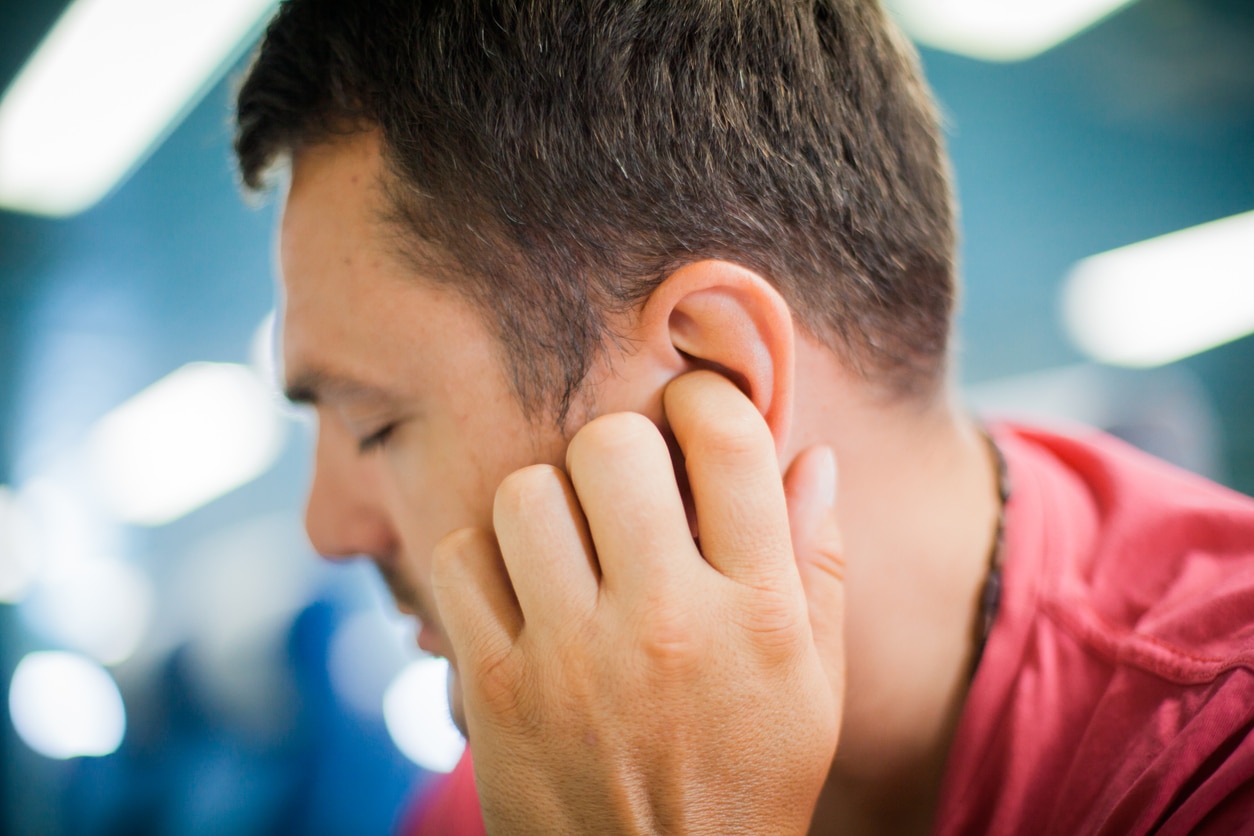If you’ve just returned from the gym and started experiencing a ringing or humming sound in your ears, it may be exercise-induced tinnitus. Tinnitus is the perception of a sound with no external source, and it’s estimated that more than 50 million U.S. adults have experienced tinnitus before.

How Does Working Out Cause Tinnitus?
- Increased heart rate. Your inner ear is very sensitive to changes in blood flow. An elevated heart rate can cause you to hear a whooshing sound in your ear. This is the sound of blood surging through the tiny vessels in your ear.
- Cranial pressure. Straining while weightlifting changes the pressure levels in your cranium and inner ear. This effect will be heightened if you hold your breath during strenuous exercise. These pressure shifts can trigger tinnitus.
- Perilymphatic fistula. A perilymphatic fistula (PLF) is a small tear in the membrane between your middle and inner ear. It may be caused by an intense increase in cranial pressure as mentioned above.
- Muscle tension in the face and jaw. Clenching your teeth overexerts or damages the joint that connects your jaw to your cranium. This joint is known as the TMJ, and it is commonly known to be associated with tinnitus.
- Loud noise exposure. Smashing weights, loud music and listening to headphones too loudly can expose you to dangerous sound levels, which can lead to tinnitus or even hearing loss.
- Stress. Putting enormous stress on your body by working out dehydrated or by not stretching beforehand can overextend the nervous system and cause tinnitus.
Is Tinnitus Permanent?
Exercise-induced tinnitus is most likely temporary. Many of the cases outlined above will heal or diminish over time (e.g., your heart rate will go back down; the fistula will close). While some cases of tinnitus are permanent, that is usually due to underlying health causes or permanent damage to the ear. You can always come in for a tinnitus evaluation to determine the extent of the damage done to the ear during exercise.
How to Avoid Tinnitus While Working Out
- Reduce your weights. If you’re overexerting yourself while weightlifting, you should back off. This will reduce cranial pressure, decrease the chances of a PLF and take the strain off your jaw and other muscles.
- Don’t hold your breath. Holding your breath increases pressure in your ears.
- Turn the volume down. If you listen to music through headphones, turn the volume to 60% of the maximum level.
- Don’t smash weights. The sound of the heavy weights striking the floor can reach exceedingly high sound levels, akin to the sound of an explosion or a gunshot.
- Wear hearing protection if the gym turns the music up too loud.
- Practice good workout habits. Take rest days. Stretch before working out and do warm-ups before strenuous exercise. Stay hydrated. Neglecting any of these increases the stress on your body, which can cause tinnitus.
We also recommend coming in for a tinnitus evaluation or hearing test if you notice changes in your hearing. Our experts at Certified Hearing Aid Consultants can help with tinnitus management and give advice on how to work out in a way that’s safe for your ears.